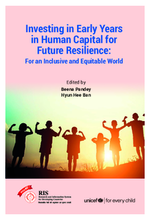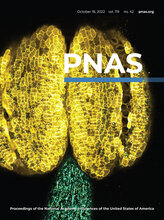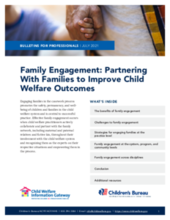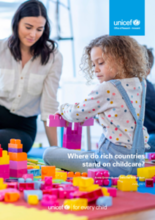Displaying 1 - 10 of 485
This book focuses on the urgent need for global investments in young children for realizing sustainable development and equitable outcomes for all. Access to services and participation, equity and inclusion are key drivers to realize the rights of the child.
In Matters of Significance, Marinus van IJzendoorn and Marian Bakermans-Kranenburg draw on 40 years of experience with theoretical, empirical, meta-analytic and translational work in child development research to highlight the complex relations between replication, translation and academic freedom. They argue that challenging fake facts promulgated by under-replicated and under-powered studies is a critical type of translation beyond technical applications.
This publication is meant to guide the collection of reliable, internationally comparable data on key ECD indicators, the selection of which was informed by the Nurturing Care Framework.
This study, based in Romania, examined longitudinal data from the Bucharest Early Intervention Project, a randomized controlled trial of foster care as an alternative to institutional care following exposure to severe psychosocial deprivation.
Engaging families in the casework process promotes the safety, permanency, and well-being of children and families in the child welfare system and is central to successful practice. Effective family engagement occurs when child welfare practitioners actively collaborate and partner with the family network, including maternal and paternal relatives and fictive kin, throughout their involvement with the child welfare system and recognizing them as the experts on their respective situations. This bulletin for professionals provides an overview of the foundational elements of the family engagement approach, followed by strategies and promising practices for implementing it.
This report published by UNICEF’s Office of Research – Innocenti, ranks countries across the Organisation for Economic Co-operation and Development (OECD) and the European Union (EU) based on their national childcare and parental leave policies.
The WHO South-East Asia Regional Office in collaboration with UNICEF organized a 3-day virtual meeting from 27 to 29 April, 2021.
This webinar, informed by both detailed case studies developed by the Aga Khan Development Network and UNICEF programme implementation in Zambia with the support of the LEGO Foundation, provided a unique opportunity to engage with and understand the experiences of government, development partners, civil society, frontline health workers, and parents in Eastern and Southern Africa.
This video explores the pivotal role of health care practitioners in supporting nurturing care for children.
This document compares three versions of the same home visiting model, aimed at improving parent-child interactions and child development: the well-known Jamaica model, which was gradually scaled up from an efficacy trial (‘proof of concept’) in Jamaica, to a pilot in Colombia, to an at-scale program in Peru.







